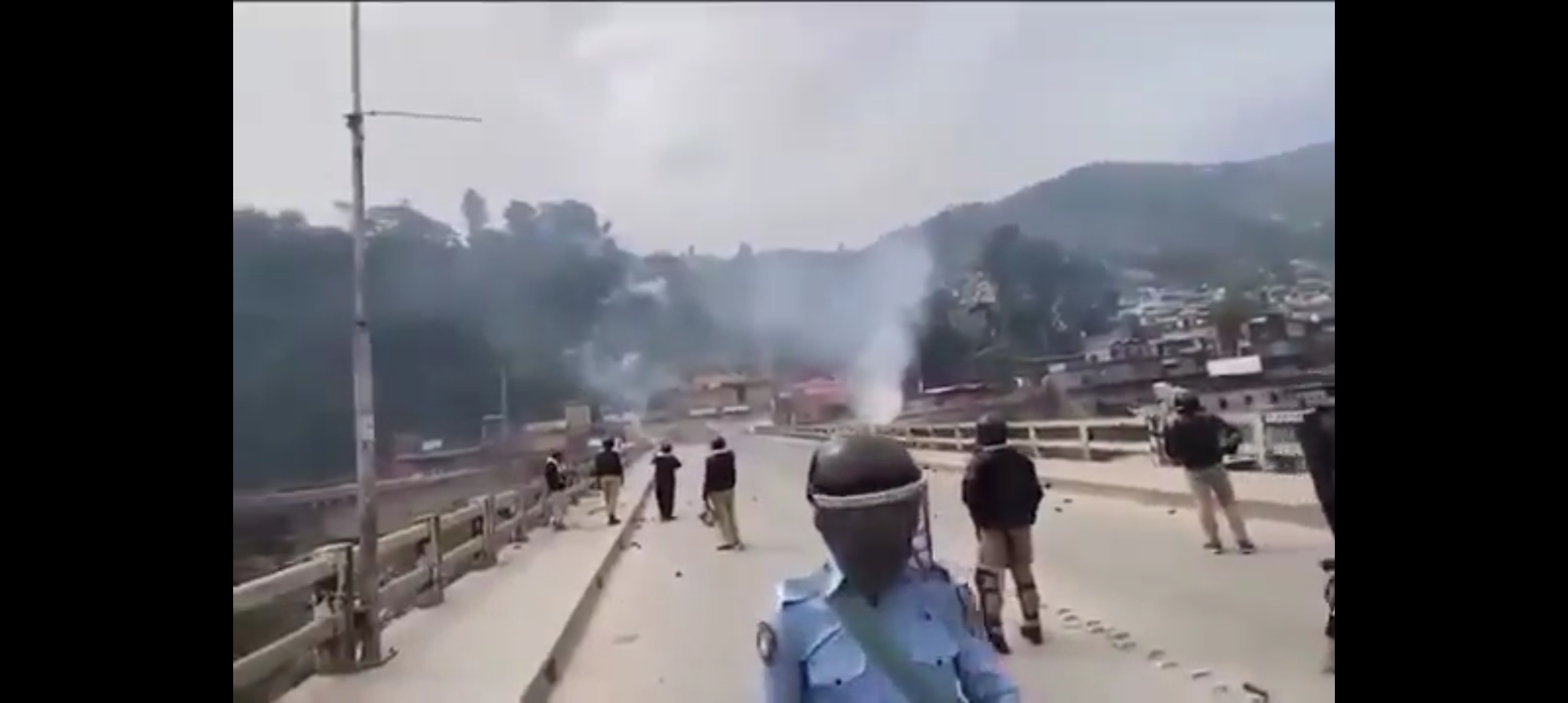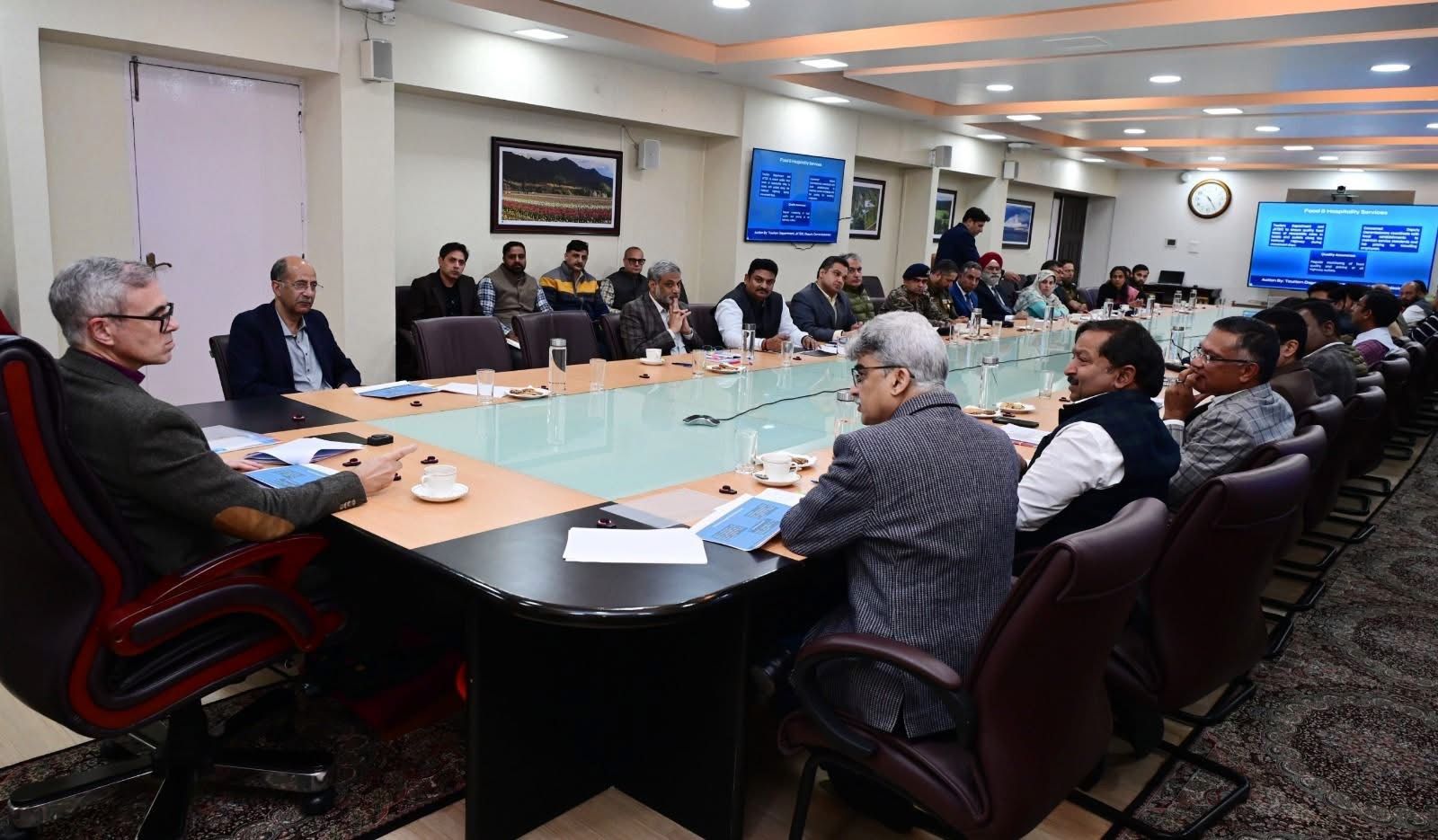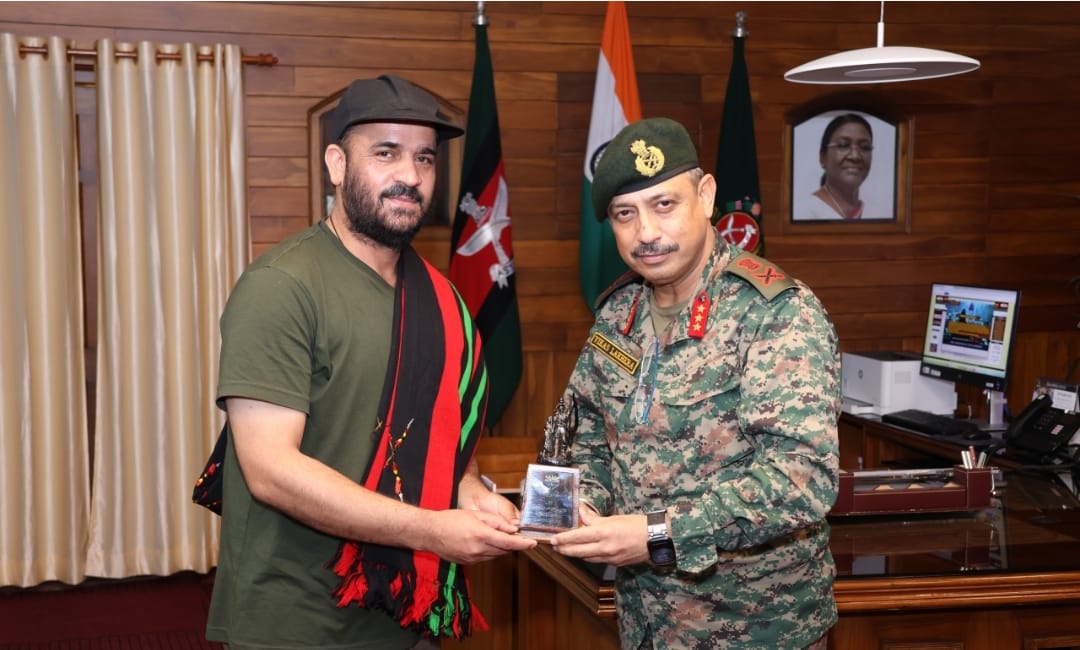
The political and humanitarian crisis in Pakistan-occupied Jammu and Kashmir (PoJK) has escalated sharply, with massive protests led by the Jammu and Kashmir Awami Action Committee (JKAAC). On 01 October 2025, thousands of people from across PoJK began a long march towards Muzaffarabad in response to the call of Shaukat Nawaz Mir, highlighting the desperation of people in the region to break free from decades of systemic neglect, brutality, and suppression under Pakistan’s control. The growing protests not only underscore frustration with Islamabad but also reflect the desire of many in PoJK to seek stability through integration with the Indian Union Territory of Jammu and Kashmir.
Widespread Protests Across PoJK
Kotli witnessed a complete shutdown, with roads blocked and large sit-ins. In Dhirkot, a convoy of nearly 2,000 JKAAC supporters faced brutal repression as Pakistani police opened fire, killing four civilians and injuring at least sixteen others, including law enforcement personnel.
In Muzaffarabad, over 2,000 protesters organized a massive sit-in at Lal Chowk, voicing anger against the killings in Dhirkot. The demonstrations later moved to Muzaffarabad bypass, where police resorted to aerial firing and tear gas, resulting in two more civilian deaths.
In Dadyal, another convoy marching from Chakswari and Islamgarh faced police violence. Two civilians were killed, and approximately ten others were injured. Such incidents have consolidated the narrative that democratic dissent in PoJK is crushed with bullets rather than answered with dialogue.
Government Crackdown and International Echoes
While the PoK administration issued a notice inviting JKAAC leaders for negotiations, the simultaneous threat of “strict action” if the protests are not withdrawn betrays Islamabad’s intent to use coercion over compromise. Significantly, the frustration of PoJK residents has gone global. JKAAC workers in London have announced protests outside the Pakistan High Commission, giving the issue international attention and further pressuring Islamabad.
Pakistani Establishment’s Denial
In a predictable pattern, the Pakistani establishment is blaming the unrest on “external forces,” echoing its habitual denial strategy. From dubbing the Tehreek-e-Taliban Pakistan insurgency as “Indian-sponsored” to dismissing Baloch rebellion as “Fitna-al-Hindustan,” the state continues to externalize internal grievances rather than addressing genuine demands. Such narratives only deepen resentment within regions like PoJK, where people increasingly see Pakistan as incapable of delivering justice, progress, or peace.
Contrast With Indian Jammu and Kashmir
The unrest in PoJK starkly contrasts with the calm, developing, and secure environment in Indian-administered Jammu and Kashmir. In the years following the abrogation of Article 370, the region has seen infrastructural development, expanding tourism, improved road and rail connectivity, and enhanced security conditions. While Pakistan-controlled territories are engulfed in fear and chaos, Jammu and Kashmir under India is witnessing a phase of remarkable transformation—peaceful elections, record tourist arrivals in Kashmir Valley, and significant investments in education and healthcare.
For the people of PoJK, this comparison is not lost. The sight of stability, prosperity, and greater freedoms across the Line of Control has only fueled their longing to merge with India. The ongoing protests are not merely about economic neglect but about a broader yearning for dignity, safety, and constitutional rights—elements they now increasingly associate with being part of the Indian Union.
A Turning Point in PoJK
With civilians braving bullets to demand their rights, the situation in PoJK has reached an inflection point. The more Pakistan chooses repression and denial, the stronger the sentiment of alienation will become. The people of PoJK appear more determined than ever to chart a new course—one that veers towards reconciliation with their brethren in Indian Jammu and Kashmir rather than subjugation under Islamabad’s failing policies.







